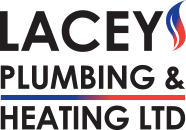Commercial Plumbing Health and Safety Regulations
Health and safety standards play a huge role in maintaining a safe and secure environment. There are several common commercial plumbing health and safety regulations that every landlord, facilities manager and business owner should be aware of.
Get a Quote Request a CallHealth and safety standards play a huge role in maintaining a safe and secure environment, especially those which revolve around commercial plumbing.
There are several common commercial plumbing health and safety regulations that every landlord, facilities manager and business owner should be aware of.
Who is responsible for plumbing maintenance in a commercial property?
Who is responsible for plumbing maintenance in a commercial property will depend on the type of property. For example, within a rental property, it is the landlord’s responsibility to organise regular commercial maintenance to ensure the building’s plumbing is working as it should be.
If you are the office or facilities manager of a commercial building, then it is likely your responsibility to ensure your building is being regularly visited by a commercial maintenance plumber.
If you have your own commercial property, such as if you are a self employed hairdresser in a salon, then it will be your responsibility, even if you have other team members working within your salon.
Why does commercial plumbing need regular maintenance?
A commercial building is likely to have a high usage of people using their plumbing facilities each day, from taps, toilets, showers and built-in appliances like dishwashers. It’s important that a business has a strong system that can keep up with this demand.
Regular plumbing maintenance ensures that these businesses have reliable plumbing that stays in good working condition. Without this, businesses can experience a damaging amount of downtime which can affect overall productivity and cause expensive repair costs.
Checking your commercial plumbing regularly through scheduled maintenance can help to identify any issues before they happen, which will inevitably help to extend the lifespan of your commercial plumbing.
Plumbing health and safety regulations to be aware of
Water supply regulations
One of the main concerns in commercial plumbing maintenance is clean and safe water. Compliance with water supply regulations is vital in preventing any contamination and ensuring the health and well-being of all individuals who use the plumbing facilities.
Complying with water supply regulations includes:
- Regularly inspecting and maintaining the water supply
- Complying with water quality standards
- Installing backflow prevention devices
- Properly labelling water sources and potential hazards
Drainage and waste management
Efficient drainage and waste management systems are vital to preventing clogs, odours and health hazards. Complying with drainage and waste management ensures wastewater is correctly and safely removed.
Complying with drainage and waste management regulations includes:
- Having proper slope designs in drain pipes to drain and promote water flow
- Installing traps and vents to prevent sewer gases from entering the commercial property
- Regularly cleaning and maintaining drains to prevent clogged pipes
- Complying with local waste disposal regulations
Pipe material and installation
Choosing the right material and ensuring the proper installation is essential for preventing leaks, bursts and other plumbing issues. Following specific guidelines help to maintain water pressure, optimise system performance and reduce the risk of accidents.
Complying with pipe material and installation regulations includes:
- Choosing the most appropriate pipe materials
- Properly installing the pipes, including fittings, joints and support
- Periodically inspecting the pipes to identify potential problems
- Regularly maintaining areas which have leaked or have signs or corrosion
Gas safety regulations
Commercial buildings often use gas for a number of reasons, from commercial kitchens to hot water systems. Sticking to gas safety regulations is essential in preventing gas leaks, fire hazards and potential health risks that are associated with incorrect gas installation.
Complying with gas safety regulations includes:
- Having pipes being installed correctly by Gas Safe engineers
- Regularly inspecting gas systems, including pipes, fittings and appliances
- Installation carbon monoxide detectors
- Installing proper ventilation systems to prevent the build-up of gas in one confined space
Accessibility standards
Including plumbing designs that are accessible for everyone are essential when planning a commercial plumbing system. Adhering to these standards ensures individuals with disabilities can safely and comfortably use the facilities.
Complying with accessibility standards includes:
- Installing accessible plumbing features, such as accessible toilets
- Complying with local building codes and regulations
- Clearly using signage
- Regularly maintaining and repairing to allow for accessibility
To support you with compliance in commercial plumbing, book in regular maintenance with a commercial plumber who will keep on top of these factors for you. Our team is well experienced and ready to support the businesses that need it.
Unit 11 Eton Business Park
Eton Hill Road, Radcliffe, M26 2ZS
Opening Times
Mon – Fri 8am – 5pm
Call Us Today
0161 879 4949